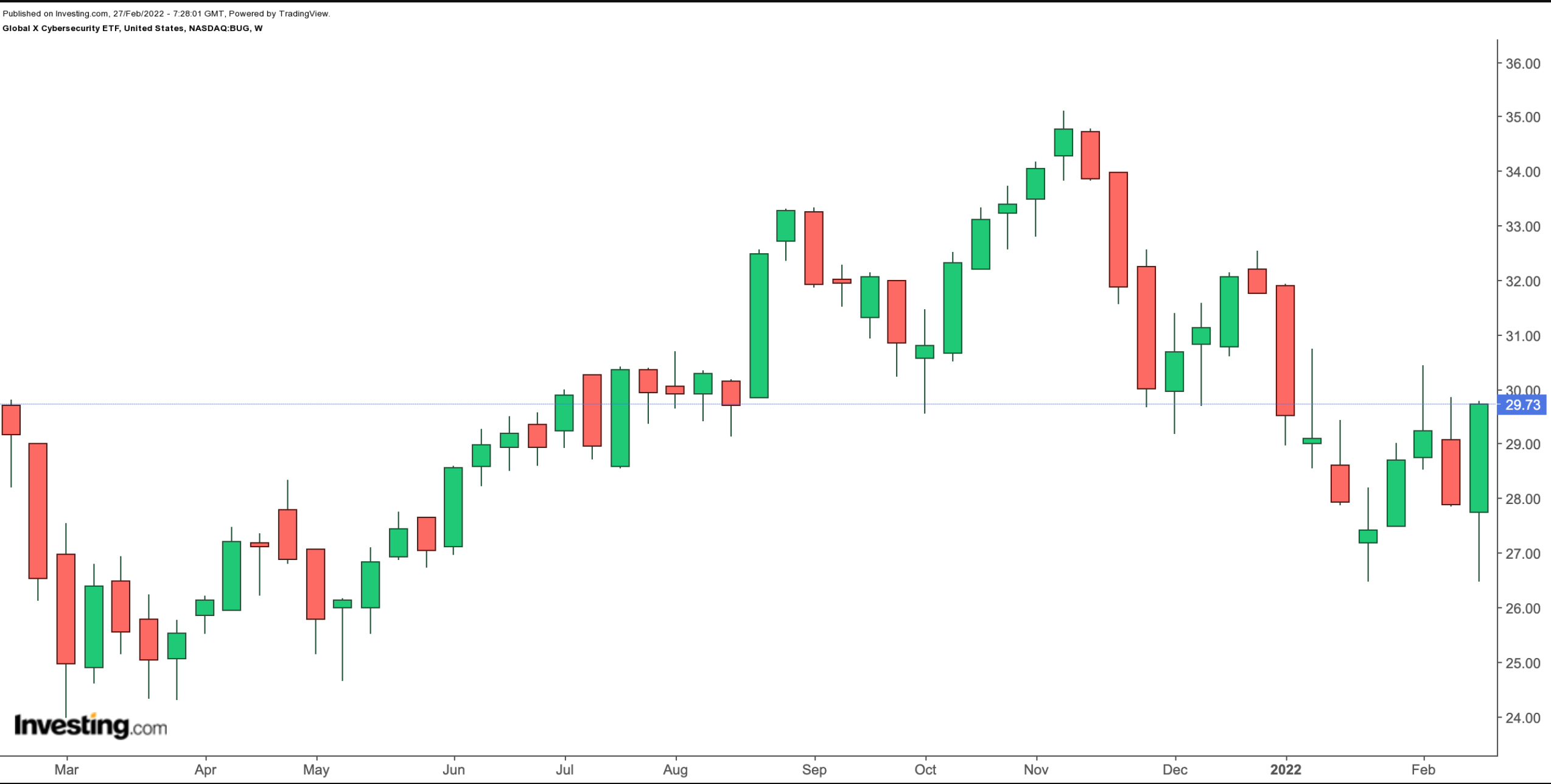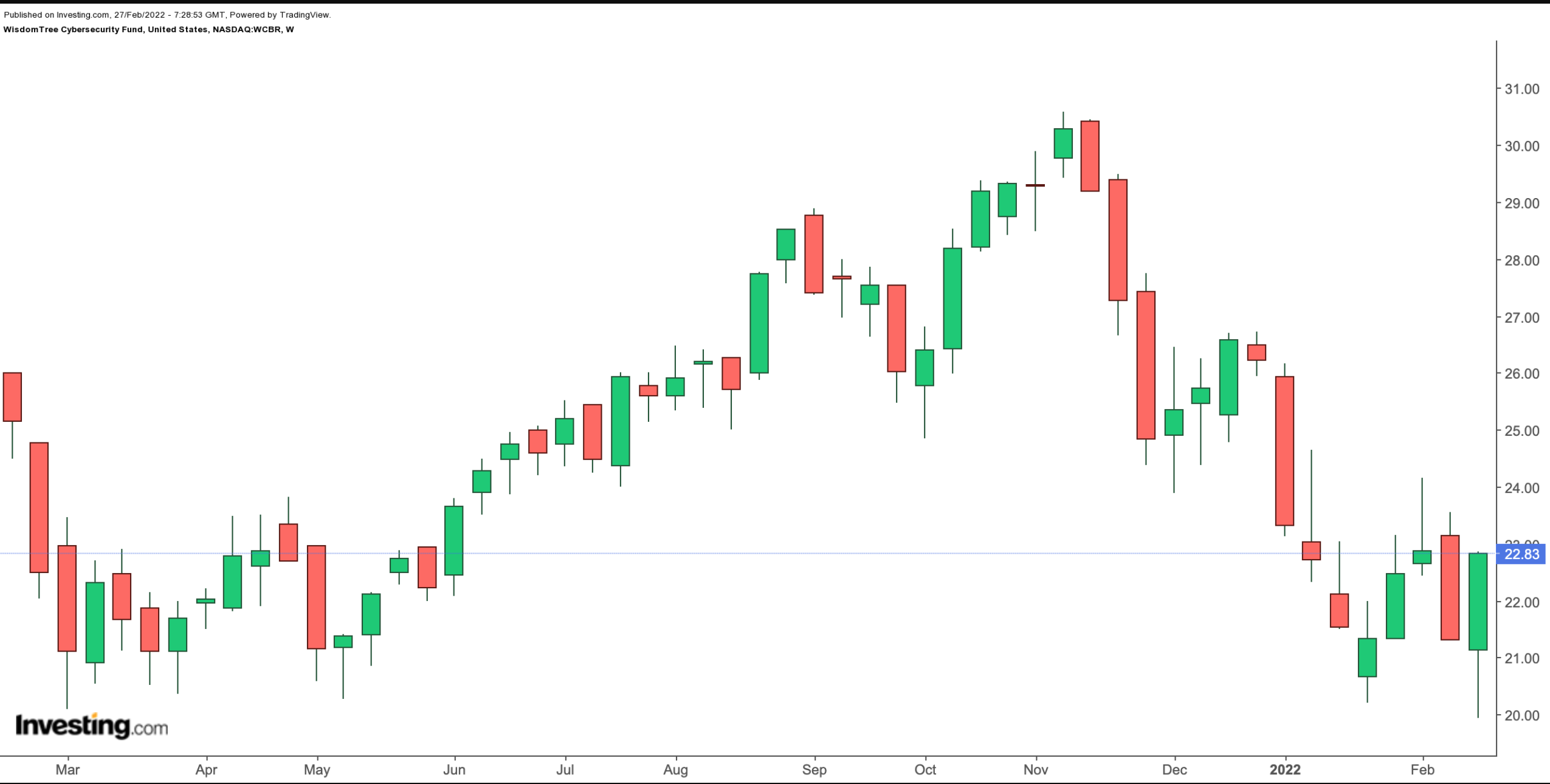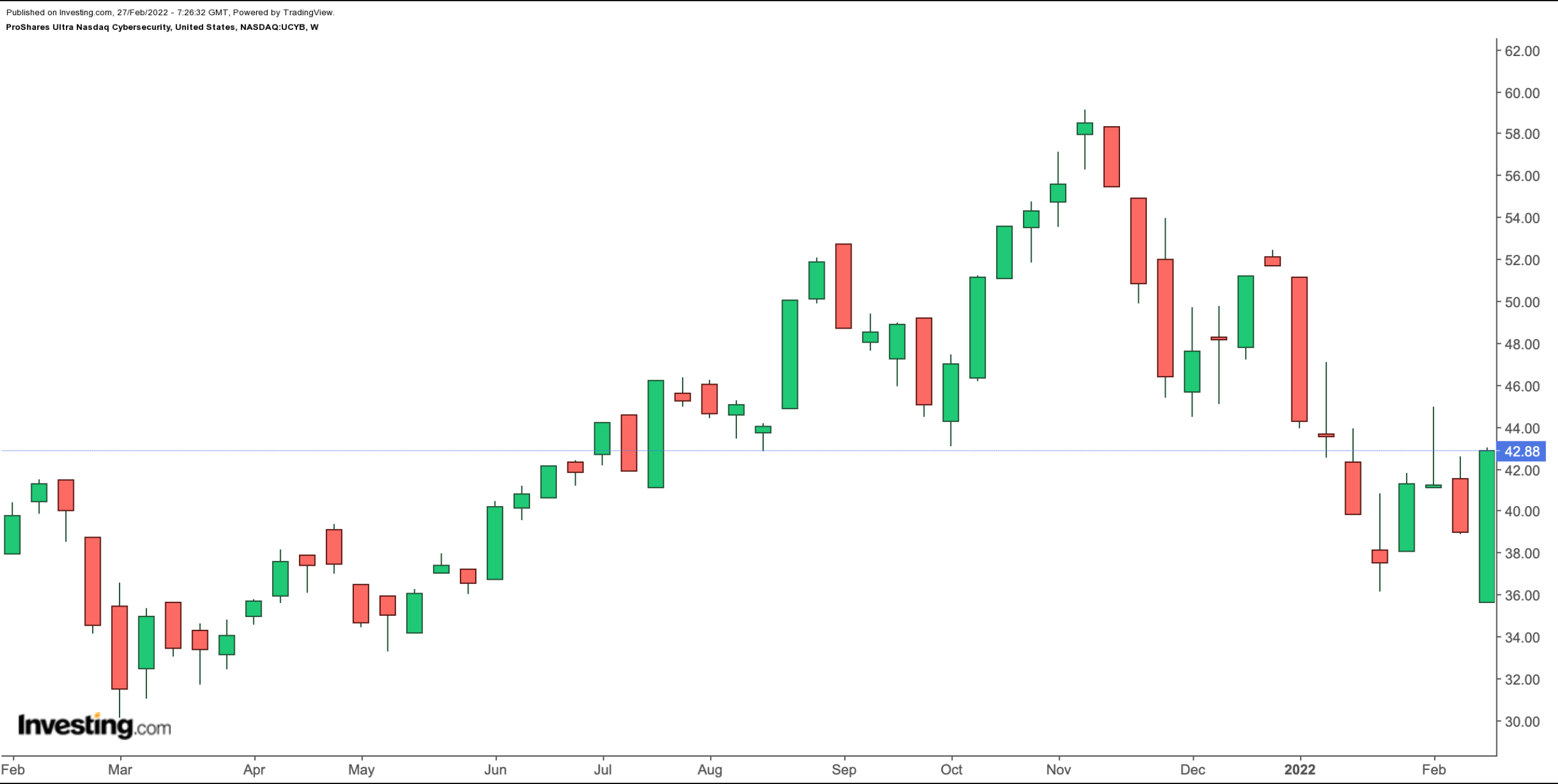With the outbreak of the Russian war on Ukraine causing an additional spike in already rising geopolitical risk, cybersecurity stocks and exchange-traded funds (ETFs) have recently become a bright spot. Russia is known to be a powerful party in global cyberwarfare.
Thus, Wall Street is betting that recent military attacks on Ukraine could also lead to a surge in cybersecurity attacks worldwide. The S&P Kensho Cyber Security Index returned over 3.5% in the past week.
Recent metrics highlight the global cybersecurity market could surpass $360 billion by 2028. That level of revenue would mean a compound annual growth rate (CAGR) of about 12% from the current level.
Therefore, today’s post introduces three ETFs that could appeal to a range of readers wishing to have exposure to stocks in the cybersecurity space. Such companies typically develop software and manage security protocols or platforms that prevent attacks on networks, computers, mobile devices or applications.
1. Global X Cybersecurity ETF
- Current Price: $29.73
- 52-week range: $23.97-$35.10
- Dividend yield: 0.31%
- Expense ratio: 0.50% per year
The Global X Cybersecurity ETF (NASDAQ:BUG) invests in shares of international businesses that benefit from an increased adoption of cybersecurity technology. The fund was first listed in October 2019.

BUG, which has 32 holdings, tracks the Indxx Cybersecurity Index. The top 10 stocks in the fund account for close to 58% of net assets of $1.02 billion.
Around two-thirds of the companies come from the US. Next in line are businesses from the U.K. (13.8%), Israel (12.8%), Japan (5.7%), South Korea (0.6%), and Canada (0.4%).
In terms of the sub-sectors, we see information technology (98.1%), communication services (1.6%), and industrials (0.3%).
Check Point Software (NASDAQ:CHKP), Palo Alto Networks (NASDAQ:PANW), Fortinet (NASDAQ:FTNT), Avast (OTC:AVASF), NortonLifeLock (NASDAQ:NLOK), Zscaler (NASDAQ:ZS), and Trend Micro (OTC:TMICY) lead the names on the roster.
In the past 12 months, the ETF is up over 12%. It hit a record high in November 2021. However, BUG is down 6.4% since the start of the year.
Buy-and-hold investors who believe individuals, businesses and governments will put more resources into protecting their digital assets could consider buying BUG around these levels.
2. WisdomTree Cybersecurity Fund
- Current Price: $22.83
- 52-week range: $20.09-$30.58
- Dividend yield: 0.50%
- Expense ratio: 0.45% per year
The WisdomTree Cybersecurity Fund (NASDAQ:WCBR) also invests in cybersecurity names worldwide. Since its inception in January 2021, net assets have reached $35.6 million. In other words, it is still a young and relatively small fund.

WCBR currently has 27 stocks. The leading 10 account for close to half of the portfolio. Almost 80% of the names come from the US, followed by those from Israel, the U.K., Japan, and Canada.
Palo Alto Networks, Datadog (NASDAQ:DDOG), Cloudflare (NYSE:NET), Tenable Holdings (NASDAQ:TENB), Rapid7 (NASDAQ:RPD), and Okta (NASDAQ:OKTA) lead the names on the roster.
The fund returned roughly 1% in the past 12 months but is down 13% so far in 2022. Potential investors interested in the fast-growing cybersecurity segment should research WCBR more closely.
3. ProShares Ultra NASDAQ Cybersecurity
- Current Price: $42.88
- 52-week range: $30.12 - 59.11
- Expense ratio: 0.99% per year
Our last fund, the ProShares Ultra NASDAQ Cybersecurity ETF (NASDAQ:UCYB), is a leveraged fund—a topic we have previously covered in detail (for example, in this post, as well as this one, and more recently here). Thus, it might be of interest to more experienced traders, rather than most retail investors.

UCYB currently invests through derivative products in shares of cybersecurity and other related companies. The fund’s aim is to achieve 2x (twice) the daily returns of the NASDAQ CTA Cybersecurity Index. Therefore, it is not appropriate as a buy-and-hold investment.
Among the companies included in the index are Accenture (NYSE:ACN), Cisco Systems (NASDAQ:CSCO), Palo Alto Networks, CrowdStrike (NASDAQ:CRWD), Cloudflare, and Juniper Networks (NYSE:JNPR). Over half the names in the index are software companies. Next come IT services, communications equipment, professional services, and aerospace & defense companies.
UCYB started trading in late January 2021, and net assets stand at $6.4 million. The ETF is up 24.2% in the past 12 months, but only 17% in 2022. Short-term traders who want to bet daily on secure internet transactions and communications should put UCYB on their radar.
